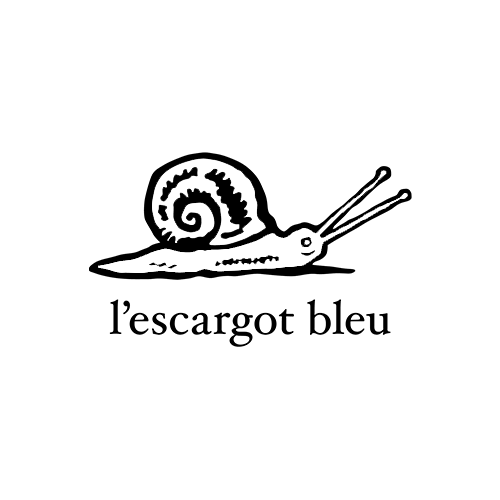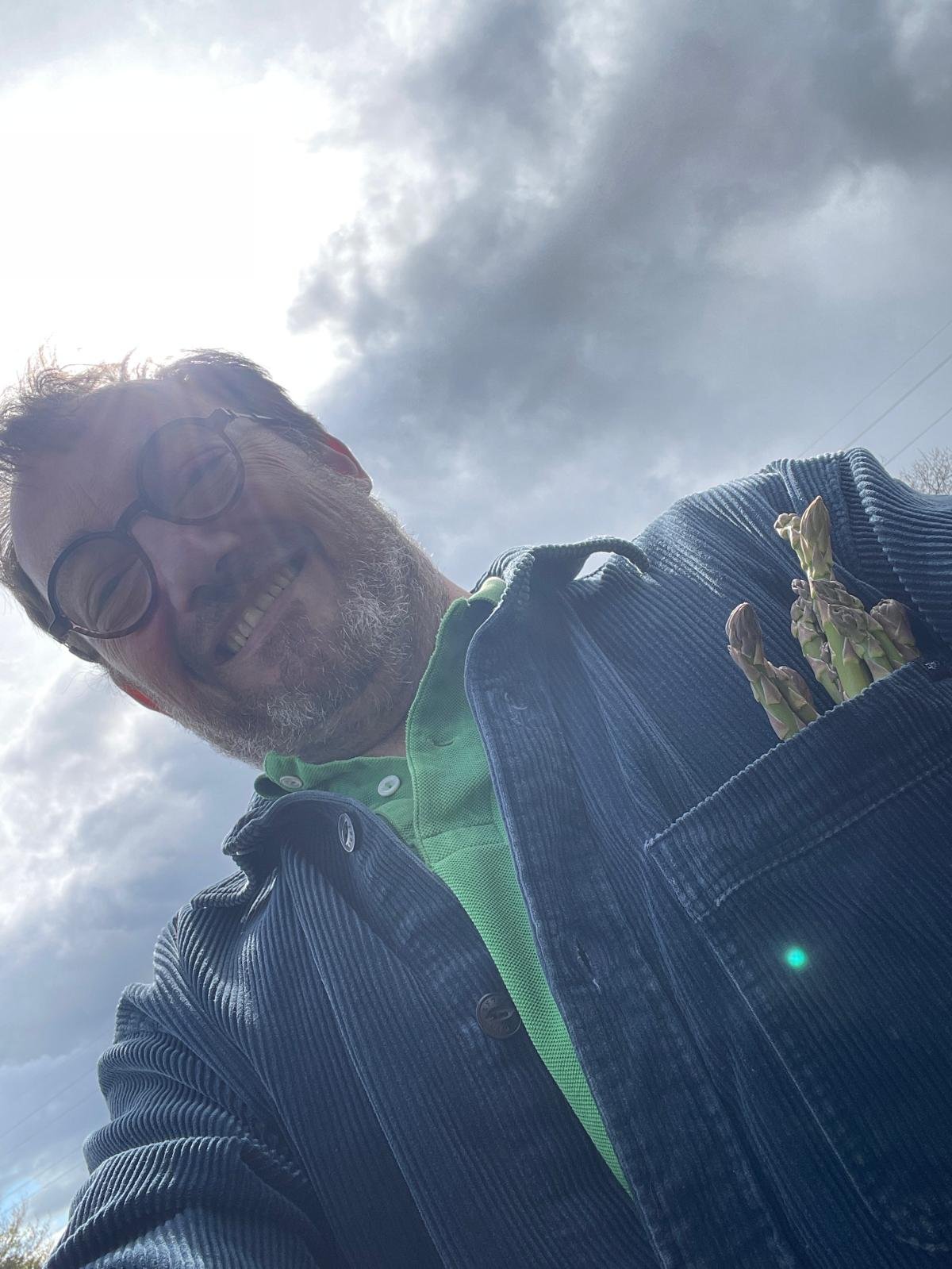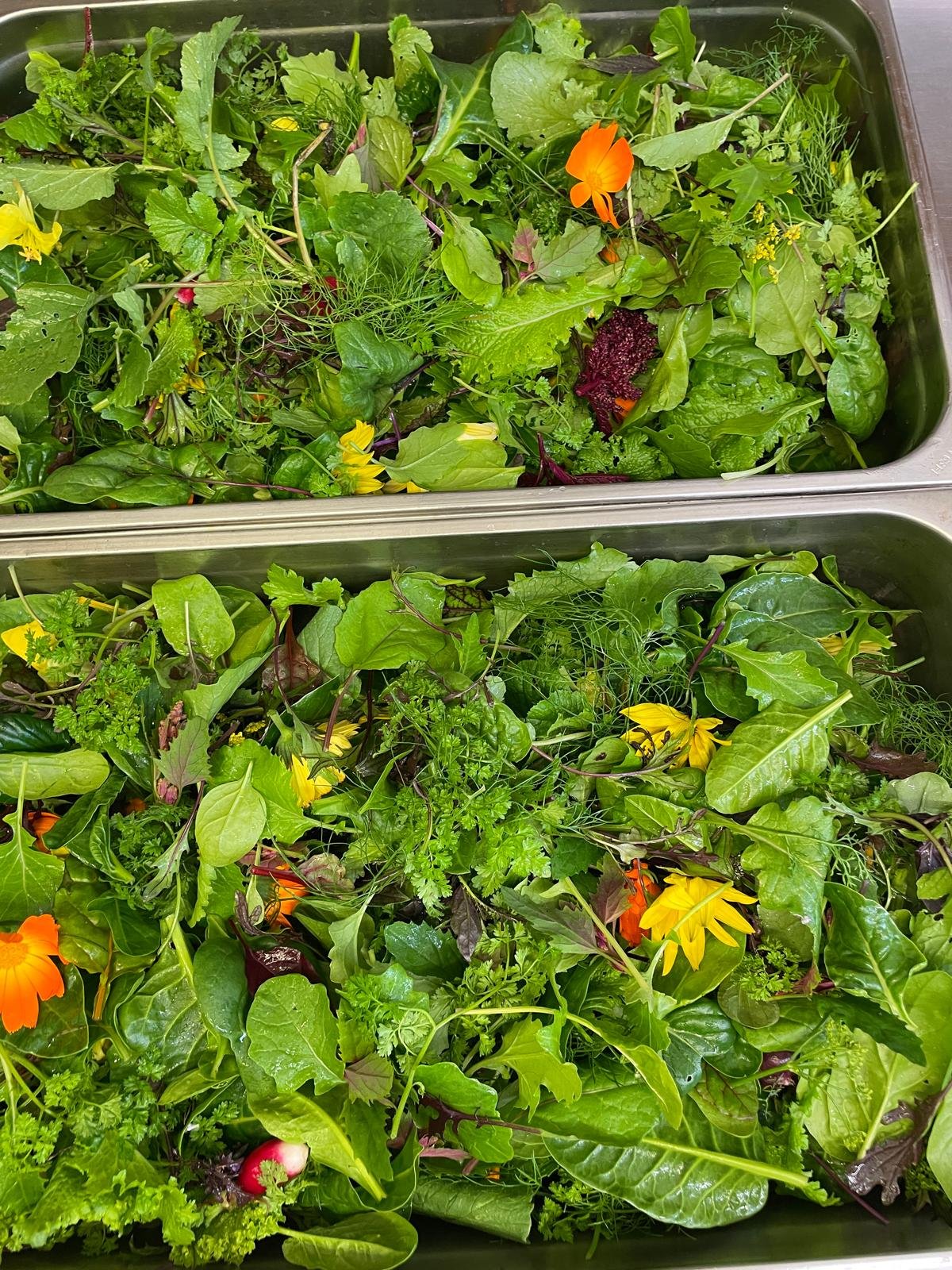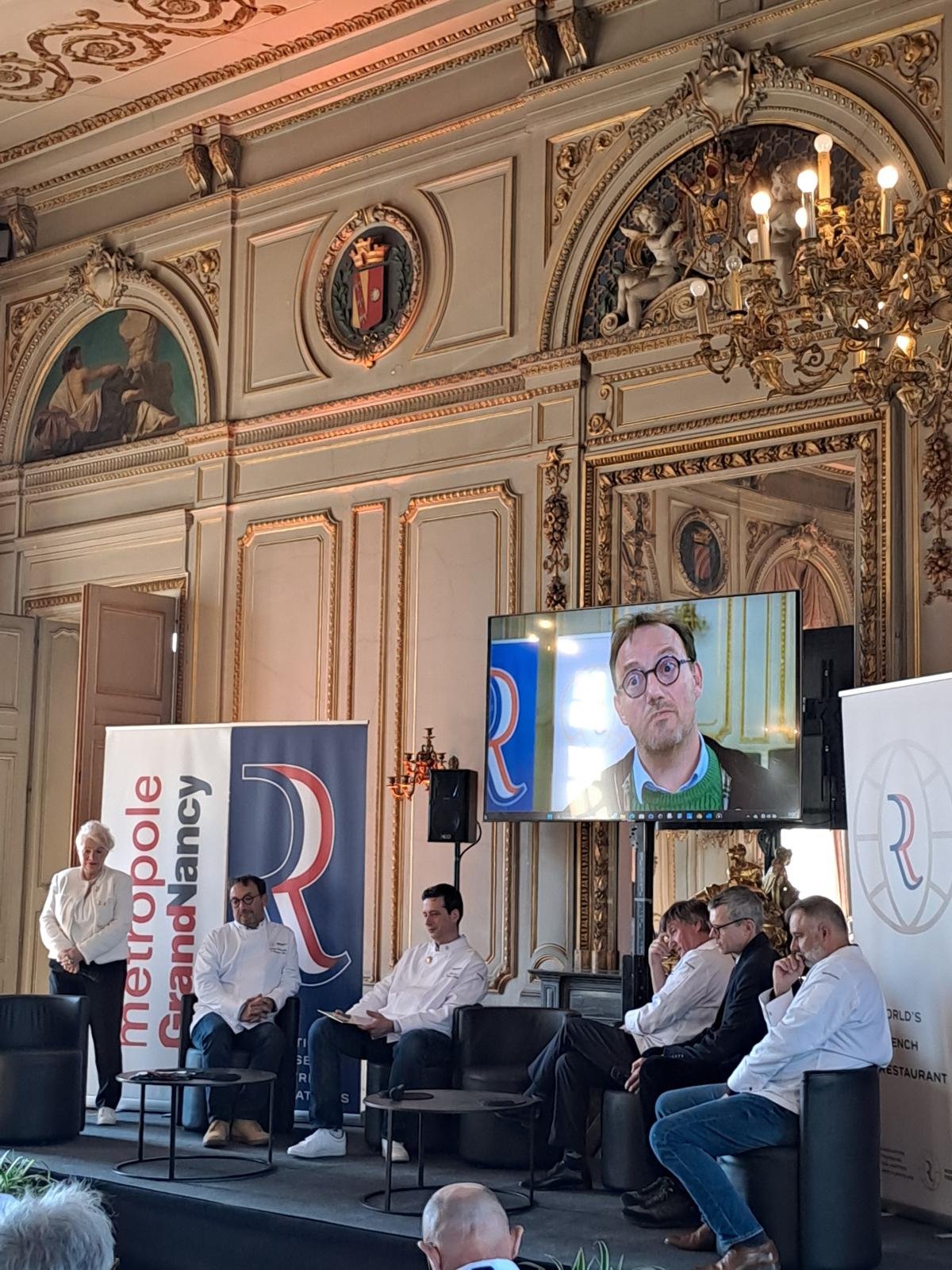fred’s newsletter 30.04.25
Fred in action in Nancy
Hello everyone,
I hope all is well with you all.
I see my cheeky wife sent a newsletter out a few weeks ago and made the promise that she would push me to write again with some news. She also mentioned she would succeed in getting me in front of the camera to let everything I have inside come out to you –with some cooking, of course. One thing she has managed is to get me back in front of my 20-year-old laptop to write a few words. I hope I won’t disappoint.
Spring growth in the garden...
Springtime in the Garden
Spring is at full speed here in Edinburgh –but even more preciously in Musselburgh, where my garden is. The last few weeks have been marvellous with clear blue skies, little wind, and fairly warm weather. Located in a microclimate, Monkton garden feels like a protected environment –frost and heavy weather don’t really reach our ground.
It’s been a great start to the season and I think we might be well ahead of the game compared to last year. Harvest is already plentiful: lots of spinach, beautiful emerging winter salad, and herbs of all kinds coming in thick and fast. Leeks planted last summer are green, big, and full of flavour. The spring cabbages planted during Charles Dowding’s visit won’t be long now –probably just a couple of weeks, they’re shaping up very nicely. Pansies are popping up all over the place, along with broad beans.
We’re sowing at full speed with great results and good germination –fast and successful too. What else could I ask for? It would be a very long list if I had to mention everything we’ve sown, but I can tell you: tomato plants are absolute beauties –20 varieties, totalling 100 plants. Celery, celeriac, onions, shallots are in the ground. Garlic is coming up and looking healthy. The sowed leeks are green and standing proud. Strawberries –healthy and green. And many more! I should also mention the asparagus –three types, planted two years ago, now showing their heads through the dome. This gets me highly excited –it’s a long wait to harvest.
Fred sowing some seeds and with asparagus in his pocket!
Taking a Risk –and Winning
We planted a lot during March. I took a chance, as I like to do, and it was a good bet –everything is full of life. That said, we’re not frost-proof or covered. We all know late spring isn’t quite safe, and we could get a bad surprise. So, precautions are taken –everything is covered with a winter dress. We’ll see. I’m feeling confident, but if frost hits, we sow again. We adapt.
From the Garden to the Plate
Some of you may have watched the video with Charles that was published a few weeks back. It shows how much work we’ve been doing at Monkton and the results we’re getting. It is quite unbelievable –and I’m proud of the achievement.
Three years to build that garden and get these results. Have I learned something? Hell yes! Have I succeeded? Hell yes! I’ll explain: feeding the soil with plenty of natural goodness gives me the extreme pleasure of feeding myself and my customers with the most healthy and nutritious vegetables. I couldn’t buy the same quality. The tons of compost made in the garden, mostly from natural waste, have helped create an extremely rich and fertile base. It’s all in the compost! The rest is basic –and instinctive
Leek and asparagus salad with goats cheese
Why I Say Natural – Not Organic
I am using the word "natural" because I believe "organic" has become biased, overused by big corporations. For example: how can an organic pesticide exist? Can these two words even go together? I smell a rat, as we say. No half-measures. No chemicals – whatever they are, they shouldn’t be used.
I’ve learned that to eat well and achieve a healthy diet – naturally – there’s no choice but to grow it yourself and eat well by the nutrients in each vegetable. Many suppliers will sell you organic vegetables – 80% from Spain and Holland – but they haven’t grown on nutritious soil. They are tasteless, sad-looking, factory-grown from GM seeds made to grow fast and look good. They all look the same, but have no goodness in them, they will fade and look very poor very quickly. They have no nutrients in them, just water.
My Mission in the Kitchen
Have I succeeded? I’m certainly on my way. The human being has changed so much about the food we need every day that it’s now hard to find anything truly natural and nourishing. Let’s look at basic ingredients – tomato paste, vinegar. Why is it almost impossible to find a tin of tomato paste made 100% naturally? Why can’t we buy vinegar that hasn’t been made with chemicals and not naturally made?
In my kitchen, my policy on incoming goods is probably the most advanced and strictly “as natural as it can be”. It’s a serious mission. To become 100% natural in everything reaching my stove will take time – but I am very hopeful and optimistic. I’ll get there. I hope I’m making sense. I’m on an ongoing mission… one that sadly won’t end anytime soon.
The leeks and Roast goats cheese with Monkton garden salad. Yum!
Joining World French Restaurant
Last year, I was invited to join World French Restaurant. In French, this is called Maître Restaurateur – a governmental body giving out labels of distinction. I was very happy and proud to be asked, especially knowing only two of us in the UK hold this title.
It took a few weeks of questions and answers by email and WhatsApp, explaining L’escargot’s philosophy and showing my willingness to achieve our mutual goal. The World French Restaurant movement is based on making everything in-house, buying fresh and local, and showing skills in French traditional and classic food. I’m in.
Visit to Nancy – Round One
My first visit to Nancy, in France, was a bit stressful. I knew there would be questions, and that I’d have to show I was up to the job. My name was on the list of new joining chefs – along with 12 others from around the world. It was a bit intimidating as I am out of my comfort zone when in public.
But I was made very welcom, and I ended up meeting some very interesting characters, including well-known chefs and influential people. Over the weekend we had conferences on sourcing and buying meat, butchery, fish, and of course, “made in-house” – my area. I love this topic. It’s my playing field.
I spoke naturally – au naturel. But I went against the flow. The French love labels. I explained that labels don’t always mean quality. For example, French chefs defend Label Rouge salmon – saying that if it’s labelled, it must be good. Hey ho, it must be! But as a good Frenchman in Scotland, I say: surely any chef with a bit of common sense, self-respect, and care for customers wouldn’t touch, cook or serve any of the devil farmed salmon – labelled or not, Scottish or Norwegian. I’m associated with Off The Table – an organisation working against farmed fish. None of it reaches L’escargot bleu and I am having none of it. The French didn’t get it. We moved on. More on that in another newsletter…
A New Jacket and a Gold Sign
The weekend ended quickly. I returned to my kitchen satisfied, wearing my new chef’s jacket with the World French Restaurant label, and with a lovely gold sign for L’escargot’s frontage.
Visit to Nancy – Round Two (as a Speaker!)
Last month, I was invited again – but this time as a speaker.
I had a private lunch with the president and secretary of World French Restaurant, discussing how to take things forward. They asked me what would make an impact to the public. There’s too much to say in a newsletter, but one idea: members should stand against labels and learn to fight the massive food organisations taking over. We need real information about our food system.
Talking Fish and Facing Reality
The next day’s conference was with Ethical Ocean – a strong scientific organisation listing endangered fish species. A very good subject. I’m in!
Valerie and someone else (his name escapes me) tried to speak “chef” in scientific terms, explaining to 120 chefs and buyers why we need to stop buying everything and anything when it comes to fish. I am more switched on than others - I get it – no more eels, a big slowdown on cod. We have plenty of haddock – our fish and chip shops are safe. We should be more thoughtful about fish stocks before buying and cooking.
Some of my fellow chefs weren’t so receptive and are disillusioned – asking negative questions. Arrrgh… we’re still far from my “au naturel” dream.
Tasty salad from Monkton Garden
Facing the French Food Reputation
Another conference, another touchy subject: What do our customers or friends think of France and its food today? Between the four of us on stage, we looked at each other, hoping someone else would speak first.
The truth? We all admitted we come back from trips to France a bit disappointed with the gastronomic experience. A lot of work needs to be done to reclaim France’s gastronomic status in the world. The positive? French chefs abroad – like us – are working much harder than those at home. Now, they’re asking us how to help bring French food back to the top. A big task, if you ask me. No one seems to understand why it is a real task to find a good restaurant while in France. Sad.
Talking Meat – Naturally
The final day focused on meat provenance. I’m in, of course. As a speaker, I shared my approach: I start with Pasture for Life certification. It’s my favourite. Meat with that logo has been 100% grass-fed through grazing or eating hay made from the same grass and comes from animals well looked after. Breed also matters – Dexter, Shetland, Angus, Shorthorn – they all taste different and have a different structure.
But again, I lost them. The bloody Label Rouge came up. I said nothing… still a long way to go. But I loved the day and look forward to next year’s weekend – this time in Paris.
Back home now (Edinburgh) after a week’s holiday and I am glad to be back in my kitchen and my garden, after all I am not so lonely in the middle of my vegetables and I seem to learn a lot more from them than the crowd of chefs in France, all disillusioned by the ongoing wrong food system offered to them and stupidly hammered with complaisance.
While some say Scotland might be well behind I can happily say that I am able to source and offer food from such a wide larder, all very close to my natural objective, from sea and land, game, beef, poultries and many more.
That’s it mes amis, I am looking forward to receiving scallops from Orkney this week and a shipment of native Shetland beef, along with the harvest from the garden get to some cooking after a week holidays.
Sophie, Jonathan, Bertrand are well rested and are looking to welcome you!
Naturellement, à bientôt,
Fred








